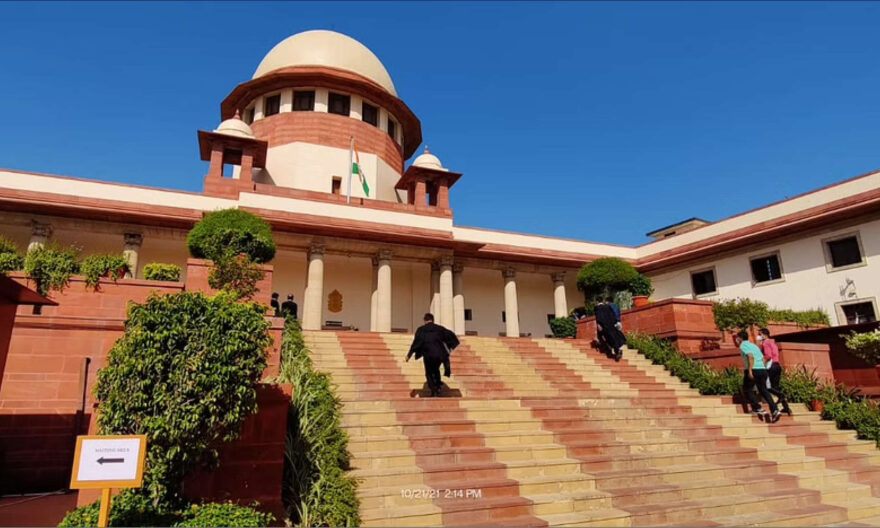
The Top Court passed a split verdict on a batch of appeals challenging restriction on Muslim girl students wearing Hijab in educational institutions in Karnataka.
The bench of Justice Hemant Gupta observed and has dismissed the 26 appeals filed against the judgment of the Karnataka High Court which held that hijab was not an essential practice of Islam and allowed the ban on wearing headscarf in educational institutions in the State.
The Court while expressing the divergence in his opinion, Justice Sudhanshu Dhulia set aside the Karnataka High Court judgment and held that the entire concept of essential religious practice was not essential to the dispute.
He stated that the High Court took a wrong path. Ultimately, it is a matter of choice and Article 14 and 19 of the Constitution. It is a matter of choice, nothing less and nothing more.
The bench of Justice Dhulia said that the foremost question on his mind was the education of the girl child. “Are we making her life any better? That was a question in my mind…Thus, I have quashed the Government Order of February 5 and have ordered the removal of the restrictions…I have held that the judgment in Bijoe Emmanuel squarely covers the issue.
On the other hand, Justice Gupta had framed 11 issues and answered all the questions against the appeals.
In light of the divergence of opinion, the case has to be placed before the Chief Justice of India for appropriate directions.
However, the bench has reserved the judgment on September 22 after hearing arguments for ten days. The Counsel, Senior Advocates Dr.Rajeev Dhavan, Kapil Sibal, Dushyant Dave, Huzefa Ahmadi, Sanjay Hegde, Salman Khurshid, Devadatt Kamat, Yusuf Mucchala, AM Dhar, Adithya Sondhi, Jayna Kothari, Colin Gonsalves, Advocates Prashant Bhushan, Nizam Pasha etc, made arguments for the petitioners. Tushar Mehta, Solicitor General Of India and the Attorney General of Karnataka Prabhuling Navadgi appeared for the State defending the High Court verdict. The counsel, Senior Advocates R Venkataramani, Dama Seshadri Naidu, V Mohana made arguments for College Development Committees or the Teachers in support of the hijab ban.
The issues which aroused during the hearing:
Weather the present matter has to be referred to larger bench in view of the pendency of the Sabarimala reference?
Weather in Islam, hijab is an essential religious practice?
Whether it is necessary to establish that hijab is an essential religious practice for seeking the protection of Article 25?
Whether the right of wearing hijab can be claimed as part of freedom of expression under Article 19(1)(a) and part of right to privacy and dignity under Article 21?
Weather the Government Order of February 5 can be justified on the grounds of reasonable restrictions under Article 19(2)?
Weather the wearing of hijab can be prohibited on the ground that certain other groups started protesting by wearing saffron shawls? And weather such such a restriction amount to succumbing to hecklers veto?
Weather there is any legitimate state interest in imposing a restriction which will lead to the deprivation of education for Muslim girls, who are already facing social backwardness?
Weather wearing of the headscarf of the some colour of the prescribed uniform dress can be allowed on the principle of reasonable accommodation?
Weather there being a fundamental right to wear a religious dress in a classroom where a uniform has been prescribed for all students?
Weather there is a prescription of a uniform in an educational institution can be held to an unreasonable restriction?
During the arguments, it was infprmed by the State to the Court that there was no established practice of wearing hijab by Muslim girls students and that the protests were orchestrated by the Campus Front of India and that of the Popular Front of India
The post Supreme Court: Split Verdict Passed In Hijab Case; Justice Sudhanshu Dhulia Sets Aside Karnataka HC Judgement appeared first on The Daily Guardian.




